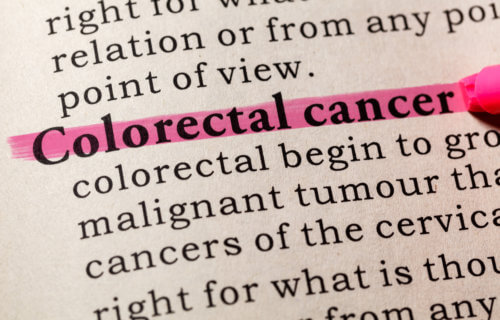BOSTON, Mass. — Many people probably equate old age with worsening healthy and higher risks for disease. When it comes to cancer however, that’s not always the case. With more and more younger people developing and dying from colorectal cancer, health officials have come to the conclusion that waiting until 50 to get a cancer screening just isn’t soon enough. In a significant move, the U.S. Preventive Services Task Force (USPSTF) is lowering their colon cancer screening age to 45.
The new recommended age to start cancer checks now falls in line with the American Cancer Society, which started calling for people to start annual screenings at 45 three years ago. Researchers from the Dana-Farber Cancer Institute say colorectal cancer (CRC) is one of the most preventable forms of the disease. Thanks to the ease and availability of accurate screening tests, doctors can detect and treat the illness early on.
With so much emphasis on screenings for adults over 50 years-old, colon cancer rates among older Americans have been declining steadily since the 1980s. Unfortunately, just the opposite is true among younger adults, with people in their 20s seeing the highest increases in diagnoses.
“A concerning increase in colorectal cancer incidence among younger individuals (ie, younger than 50 years; defined as young-onset colorectal cancer) has been documented since the mid-1990s, with 11% of colon cancers and 15% of rectal cancers in 2020 occurring among patients younger than 50 years, compared with 5% and 9%, respectively, in 2010,” says Kimmie Ng, MD, MPH, director of Dana-Farber’s Young-Onset Colorectal Cancer Center in a media release.
What’s causing younger people to develop colon cancer?
Study authors say they still don’t know the exact reason behind this rise in early-onset CRC. Previous studies have discovered a possible link between the disease and smoking habits. In 2020, researchers from the Huntsman Cancer Institute noted over 200 colon cancer “hotspots” across the southern United States.
By lowering the recommended age for screening from 50 to 45, Ng says this “will make colorectal cancer screening, which is so important, available to millions more people in the United States, and hopefully many more lives will be saved by catching colorectal cancer earlier, as well as by preventing colorectal cancer.”
The task force settled on age 45 as the new threshold after determining that starting screenings then saved more lives than at age 50. Despite the improvement, researchers, commenting in an editorial accompanying the new guidelines, continue to wonder if the age recommendation should go even lower.
The findings reveal most early-onset CRC diagnoses and deaths are occurring among patients between 45 and 49 years-old. However, the rate of increase in disease cases is actually steepest among younger Americans. Colon cancer rates are increasing by two percent each year in adults between 20 and 29. That’s in comparison to a 1.3 percent annual increase among adults in their 40s. Rectal cancer rates are rising by 3.2 percent every year in both the 20-29 and 30-39 age groups. People between 40 and 49 are seeing a 2.3 percent annual rise in this form of cancer.
“We are now seeing patients even younger than 45 – in their 20s and 30s – who are being diagnosed with this cancer and often at very late stages,” Ng reports. “Clearly the USPSTF recommendation to start screening at age 45 will not be enough to catch those young people who are being diagnosed.”
What does this mean for your next doctor’s visit?
The USPSTF is an independent panel of health experts which receives its funding from the U.S. Department of Health and Human Services. Their new recommendation will now require U.S. health insurance groups to cover preventative colon cancer screenings, like colonoscopies or stool tests, for anyone over 45 years-old. Insurers will also have to cover, at no charge to the patient, any service the USPSTF recommends with a grade A or B level of evidence.
For younger people, researchers say early detection will require more study into the risk factors driving this form of cancer. Study authors are also calling for “bold steps” to improve the country’s efforts at preventing colorectal cancer. The team notes only two-thirds of eligible Americans actually get a cancer screening. That rate is even lower among people with limited or no insurance at all.
The guideline changes by the USPSTF appear in the May 2021 issue of JAMA.
